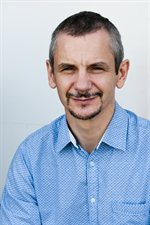Presenting the link between psychology and oral healthcare to an international audience
 Professor Tim Newton from King’s College’s Dental Institute will be presenting at the Alliance for a Cavity-Free Future (ACFF) Global Symposium in Dubai early February. Sharing his expert knowledge on caries prevention through behavioural change with the international community, Professor Newton will exploring whether the current approach to caries prevention and control strategies integrate a sufficiently broad range of evidence.
Professor Tim Newton from King’s College’s Dental Institute will be presenting at the Alliance for a Cavity-Free Future (ACFF) Global Symposium in Dubai early February. Sharing his expert knowledge on caries prevention through behavioural change with the international community, Professor Newton will exploring whether the current approach to caries prevention and control strategies integrate a sufficiently broad range of evidence.
“Patients are vitally important in the care of their oral health but often we need them to change the way they do this”, Professor Newton explains. “While changing their behaviour can appear simple it can be challenging in practise.” Drawing from a large body of research, Professor Newton will outline simple and brief ways that dental teams can enhance patients’ capability, opportunities and motivation to change their oral health related behaviour.
Tim Newton is a Professor of Psychology as Applied to Dentistry at the Population and Patient Health Division at King’s College’s Dental Institute. He is interested in the role of psychological theory in understanding dental behaviours and the development of theory based interventions to enhance oral health through behaviour change. He has contributed to the theoretical and methodological debates to understand and model how behaviour is socially determined.
The Alliance for a Cavity-Free Future (ACFF) is a global charitable organisation operated out of the Dental Innovation and Translation Centre within King’s College London. This Symposium, entitled ‘Joining up the Evidence to make an achievable difference’ is hosted by ACFF Chairman Professor Nigel Pitts. It marks the first of what is hoped to become an annual series of events hosted by the ACFF, drawing together research and guidance from across the globe with the aim of opening dialogues around caries prevention and establishing much needed links between the health disciplines in the global battle against tooth decay.